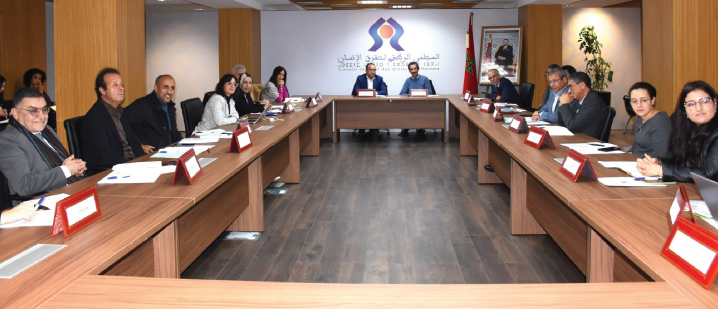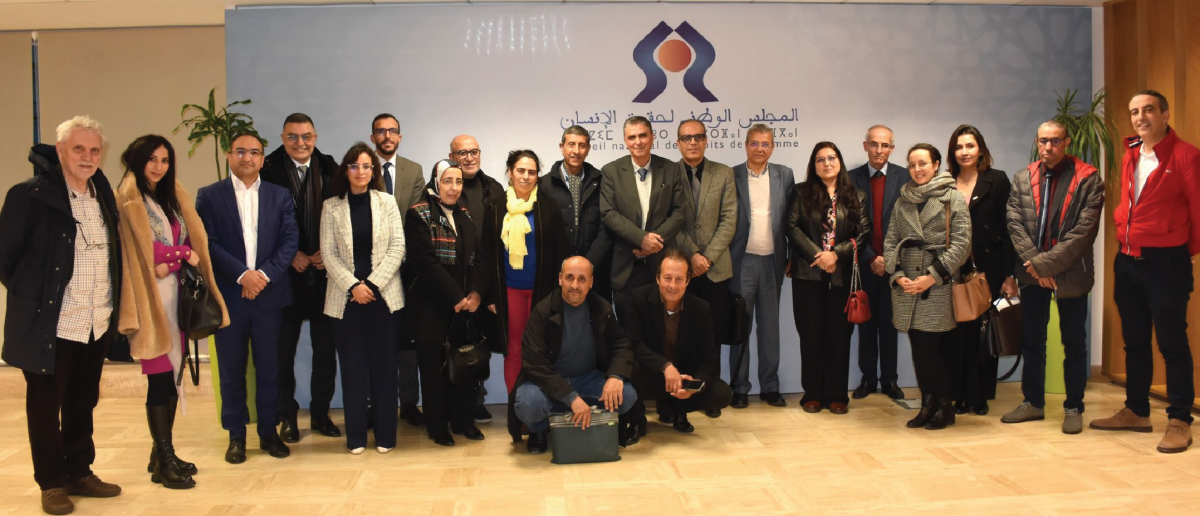Human Rights Agora: CNDH Addresses Climate Change as a Challenge to Human Rights

The National Human Rights Council (CNDH) launched a public debate entitled “Climate Change- A Global Threat to Human Rights,” on Friday 29 March 2024, at its headquarters in Rabat, Morocco. This event is the third installment of the Human Rights Agora project, gathering representatives from government sectors, civil society, researchers and experts in various climate change-related disciplines.
In his opening statement, Mr. Mounir Bensalah, CNDH Secretary-General, underscored the main issues prompting the CNDH to foreground this theme. He emphasized the profound impact of climate policy on several human rights facets, making it essential to assess relevant public policies and examine their effectiveness.
Mr. Mounir Bensalah further highlighted the effects of climate change on the right to health and the right to a healthy and clean environment, as acknowledged by the United Nations General Assembly for the first time in 2021. He emphasized that the CNDH’s aspiration, through organizing this event, is to cultivate spontaneous dialogues with climate change experts and stakeholders interested in this theme. In the same context, CNDH Secretary General shed light on Morocco’s renewable energy initiatives, strategically implemented to mitigate greenhouse gas emissions.

Mr. Mohamed El Hachimi, Head of Studies, Research and Documentation Department at the CNDH, emphasized that the selection of climate change as a global human rights challenge aligns with the CNDH’s conviction that climate changes are no longer merely a hypothesis but have materialized as tangible realities for Morocco, as manifested by national water stress.
Participants in this event examined the diverse challenges that climate change presents to human rights, with a particular focus on vulnerable groups. They explored necessary measures to face these challenges, aiming to forge a sustainable and peaceful future. They also shed light on Morocco's climate initiatives in relation to international sustainable development actions. Furthermore, participants delved into methods and mechanisms for assessing public policies related to climate change adaptation. Additionally, they discussed ways to provide innovative solutions and recommendations to raise awareness and promote shared responsibility in preserving natural resources for future generations.
In light of this debate, stakeholders called for sustained efforts to raise awareness about challenges of climate change and provide appropriate scientific support. They emphasized the crucial role of scientific research and technology in effectively addressing climate change. They also urged the development of an integrated strategy to address the repercussions of climate change, highlighting the necessity of a participatory approach aimed at narrowing the existing disparities between the most and least industrialized countries.






















